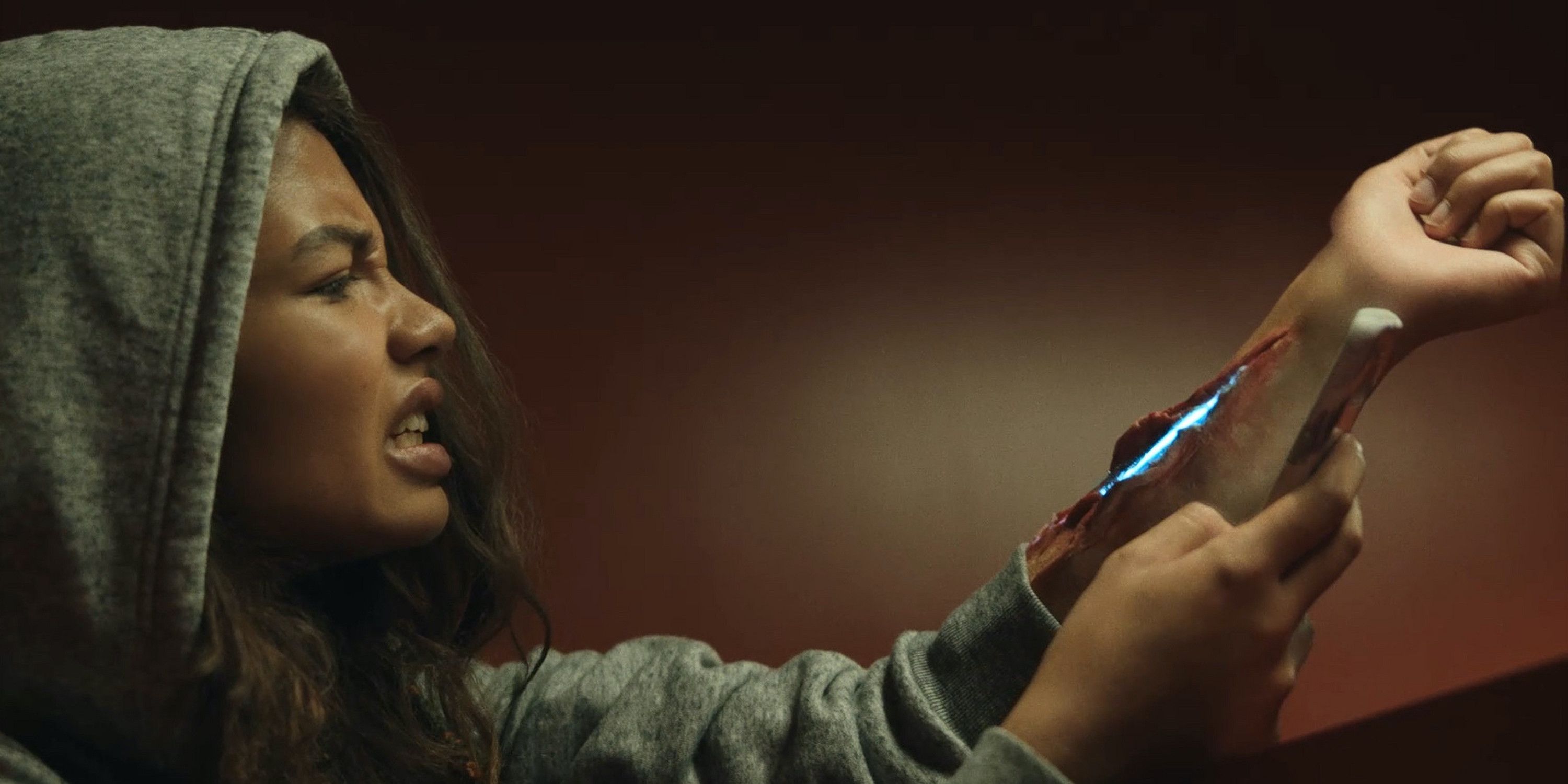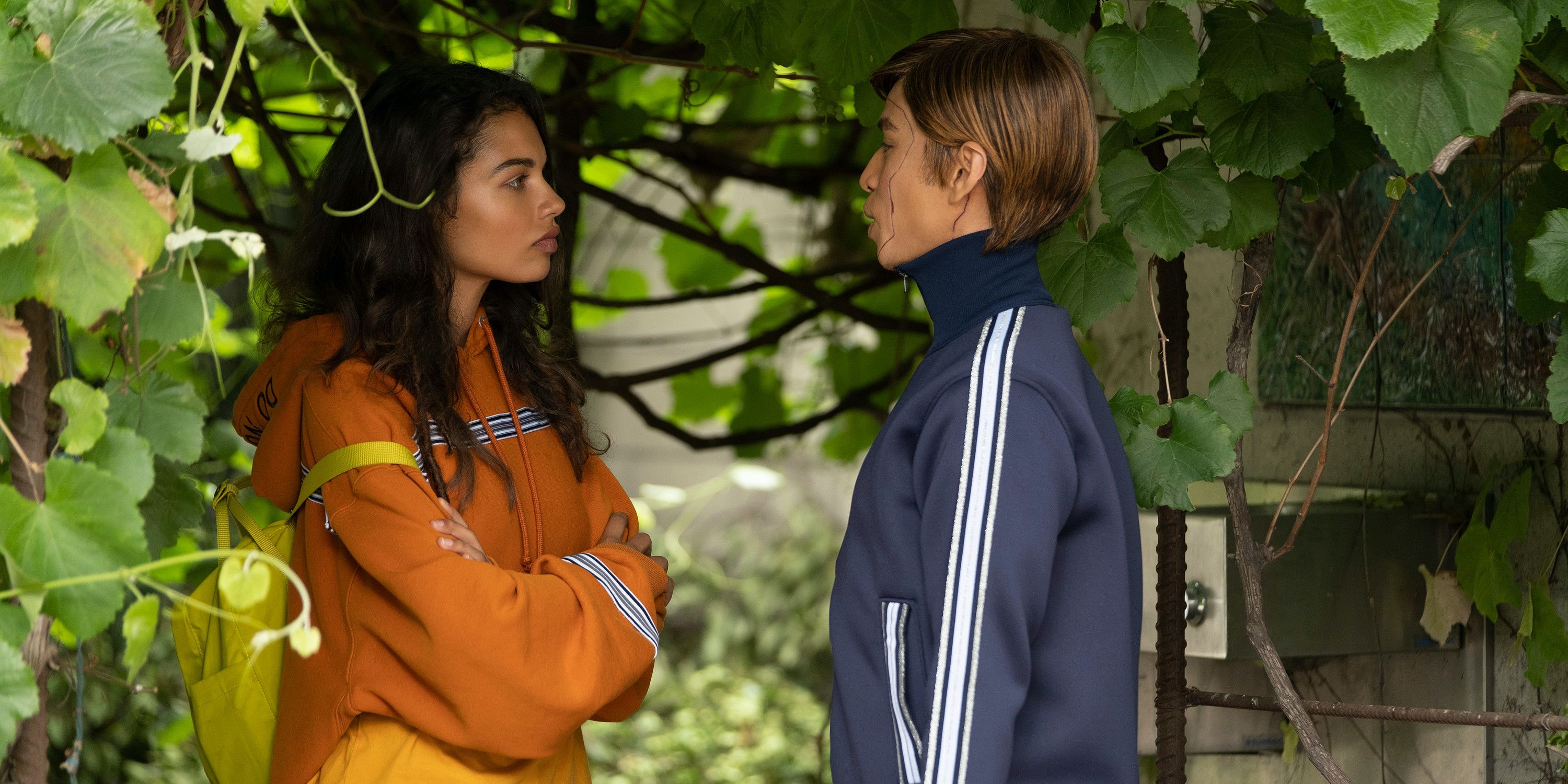One of Quibi's most recent additions to its service is the sci-fi drama Don't Look Deeper, a series that takes place "15-minutes into the future" where human-like robots have become a reality. The show centers on Aisha, played by up and coming actor Helena Howard, who also starred in the Sundance darling Madeline's Madeline. Aisha is a seemingly normal teenager who goes to high school, hangs out with her friends and dreams of going to art school for college. Yet, Aisha soon discovers she's a lot less flesh and blood than her friends and family. Realizing that she is, in fact, a robot, leads her to hack her own system. The series is a heightened coming-of-age story that also questions what makes someone human, and Howard does a brilliant job carrying the show and bringing nuance and depth to a uniquely complex character.
In a virtual interview, CBR spoke to Howard about what stood out to her about her character, how she approached playing a robot and her thoughts about taking the lead in Don't Look Deeper.
CBR: I enjoyed Don’t Look Deeper. What made you want to be part of it?
Helena Howard: Thank you. I’m glad you enjoyed the show because I enjoyed the script, and that’s what really drew me in from the beginning was the writing, and how… just great it was.
You play such a unique character. What were your thoughts about playing this teenage android?
I thought, you know, you're approaching it the same way you would any other role or person, because Aisha is so compassionate, and she has the ability to feel unlike any other being because it's so heightened. Especially as you continue on throughout the series, it only increases; her awareness only heightens even more. And what really stood out for me with her is her ability to love without boundaries, and you know, she doesn't have this pre-programmed point of view of people or ideas and thoughts, she just has her own, which is very interesting and ironic, to say the least. And, yeah, she's just really groovy.
Obviously we don't know what it's like to be a robot, but we do know what it's like to be a teenager. So, was that your way into the character?
Well, yeah, I think my way into Aisha was, you know, first building the foundation of Aisha, and going through emotionally, because that's how I can connect to her and her vulnerabilities. And, you know, I have that experience of high school, everyone has that experience of just like going through life and not necessarily being on your path and trying to figure out what your path is, right?
But there is that other side, the mechanical side, the machine that Aisha doesn't know about. It's sort of her unconscious conscious, subconscious, and that had to be established. And as an actor, I decided to make it more of a movement…. It was more of a movement-based, rather than emotional throughway. So it was physicalized, the mechanical side, because you know, as a machine, you have no feeling, you're predisposed to no feeling. So what else do you have? You can't feel, so you move. And that's how the body came into it and the physical side of it.
You had to wear prosthetics to show that there was something mechanical going on. What was it like to work with that while you were acting?
We did so many tests to actually run the wiring and test the lighting and do the color palette, all of that stuff. Which was for me, truly, just like mind-blowing and fascinating, because there are so many compartments and like technical facets that go into everything, and people don't know, but it does. And working with it, it's like you have to then move your body and contort and form your body a certain way to then make it work with what you now have attached to your body. So, on top of physicalizing and… moving a certain way for the character, for Aisha, you now have like added weight or added clothing, in a sense, to your body. And that's a lot to work with.
I would imagine it's hard to keep it in mind that you have the prosthetics on.
It is hard to keep in mind but then that's where like being one with your body, you know, and then incorporating that. It's like that scene in Joker, if you've seen Joker, where like he is becoming the Joker and you see him transform. Yeah, it's like that with every role, like you are incorporating your body and the movement into this. And, you know, it becomes natural now, every prop that you hold, every prosthetic that's applied, every piece of costume that you have on, that just goes with you.
Now, this was for Quibi, so it’s short-form video and it’s episodic. Did you shoot it like it was TV episodes or was it more like shooting a movie?
It was definitely more like shooting a movie.
So you had the complete script from the beginning?
Well, yeah, and the great thing about the script is that it was already split into chapters. So, you know, it was set up that way. So as we were filming, we had these chapters to sort of guide us. And we were also shooting in blocks in a film-production style.
This series really rests on your shoulders. How did you handle the pressure of that?
I think it, you know, it was cool, and… as soon as you see it as pressure that's when it starts breaking you down. But when you see it as something really humbling and cool, and being able to take from everyone and learn from them, number one is just a number, it doesn't really mean anything. And it's not like I'm better than anyone, because I'm not. So, it was a really great experience and I didn't feel like anything was on my shoulders, because it wasn't.
Don’t Look Deeper, directed by Catherine Hardwicke, stars Helena Howard, Don Cheadle and Emily Mortimer. The show is currently streaming on Quibi with new episodes through August 11.


